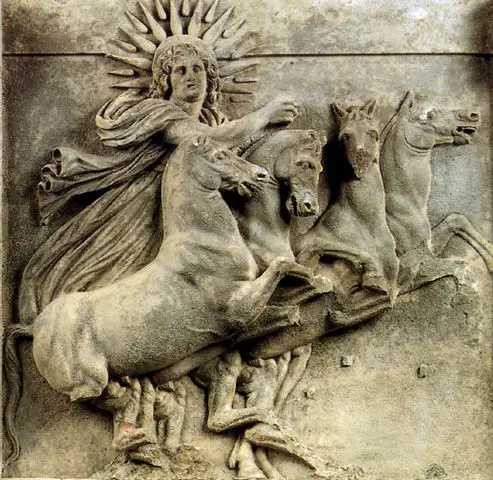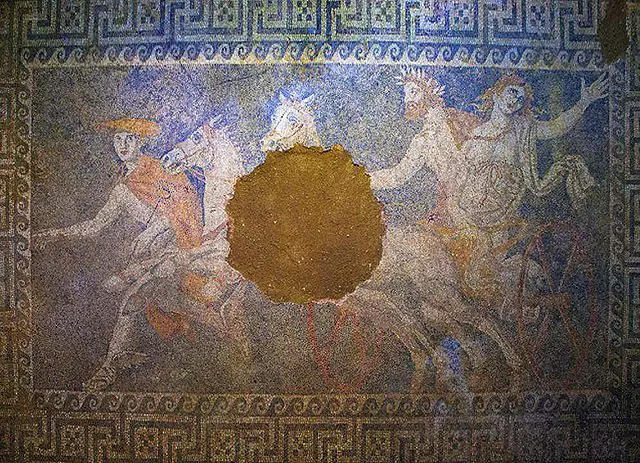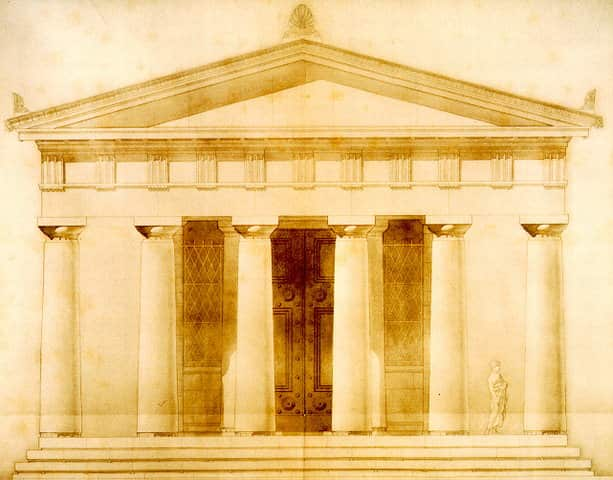
| Further Reading | The 5 Differences Between The Romans And Spartans |
When people think of ancient Greece they often think of the lavish wealth of Corinth, the battle-hardened warriors of Sparta, or the philosophers of Athens. However, often people tend to forget about how each city-state of ancient Greece had its own separate form of government. Here is an entire article that explains exactly how Sparta built and operated its government.
Generally speaking, the government of Ancient Sparta was built around an oligarchy of Spartan male citizens. At the head of this Spartan government sat two kings who had their power checked by a council of Spartan elders called the Gerousia. Further, each year 5 Spartan citizens were elected to serve as Ephors or Chief Magistrates.
Here at The History Ace, I strive to publish the best history articles on the internet. If in the end, you enjoyed this article consider subscribing to the free newsletter and sharing around the web.
Without further ado, here is everything about the ancient Spartan government.
Two Spartan Kings Headed The Government
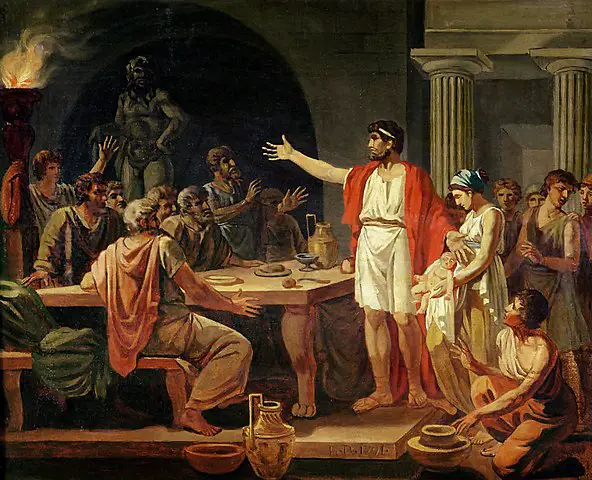
The Spartan government was headed by two kings who shared power for life.
These two kings came from opposing royal families, the Agiad and the Euypontid, and worked together to both lead the military and keep the peace back in Sparta.
Of the two Spartan royal families, one often received more respect due to being an older family and fielding more military kings. This was the royal Spartan family of the Agiad and according to the Roman Jewish historian Herod the king of this family would often be in charge of military duties. The legendary Spartan king Leonidas I came from this family.
The other Royal family, Euypontid, was known to give Spartan kings who were exceptional leaders and statesmen. This family often brought kings who were known to be wise and effective at administering the Spartan estate. This royal Spartan family was the one that the creator of the Spartan constitution, Lycurgus of Sparta, came from.
These two kings shared power and in theory, they controlled the Spartan state. The duties of the dual kingship of Sparta were to adhere to the Spartan religion, ensure the Spartan constitution was followed, and serve as the chief judge in all major judiciary cases.
While in theory, the Spartan kings were in charge of the state they were highly restricted to only exercising their power outside of the city itself. Over the ancient period as Sparta grew the power of the kings began to lessen and was instead replaced by the Gerousia.
The Gerousia’s Role In The Spartan Government
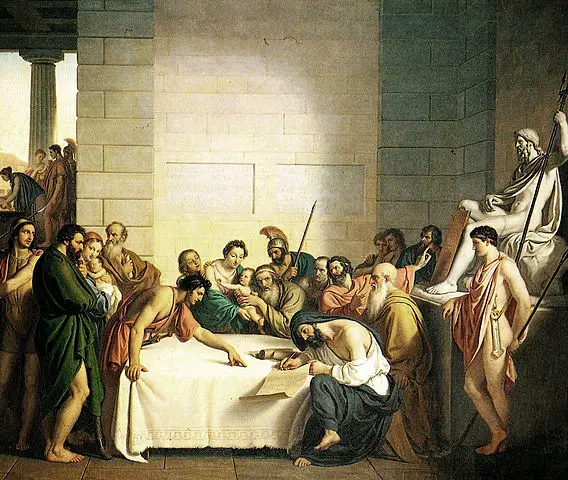
Just under the Spartan kings was the Spartan Gerousia. This body of the Spartan government was comprised of 60 Spartan men who had lived past the age of 60 and had retired from the military.
At the age of 60 a Spartan man would be allowed to ‘campaign’ for a seat in the Spartan Gerousia. Here they would be allowed to weigh in on the actions of the Spartan king and help to declare war, establish trade, and even perform some rituals in the Spartan religion.
In order for a Spartan man to be elected to the Gerousia he would have to walk in single file before the whole of the Spartan citizens. The citizens would then yell their support for the spartan male who they believed made the best elder. In the end, the spartan male who got the loudest support would be allowed into the Gerousia.
The Gerousia itself would work with the Spartan Kings who also sat on the Gerousia board to help steer the Spartan government. As you might imagine sitting on this Spartan ‘congress’ was an extremely honorable thing and most Spartans would strive to eventually be given a chance to campaign for the Gerousia.
The Spartan government would slowly become more controlled by the Gerousia over time. Eventually, this council of elders would start to push the Spartan kings out of policy-making as the Spartan state became more expansive and powerful. This power creep would cause several problems later on in the lifetime of the government of ancient Sparta as both the Gerousia and the Spartan kings would fight for control over Sparta.
Simply put, you can think of the Spartan Gerousia as a senate or ‘congress’ of Spartan soldiers who had made it to retirement age. This body of Spartan soldiers was in charge of helping the Spartan king make laws, build commerce, maintain the state, and perform Spartan rituals.
The Spartan Government’s Overseers: The Ephors
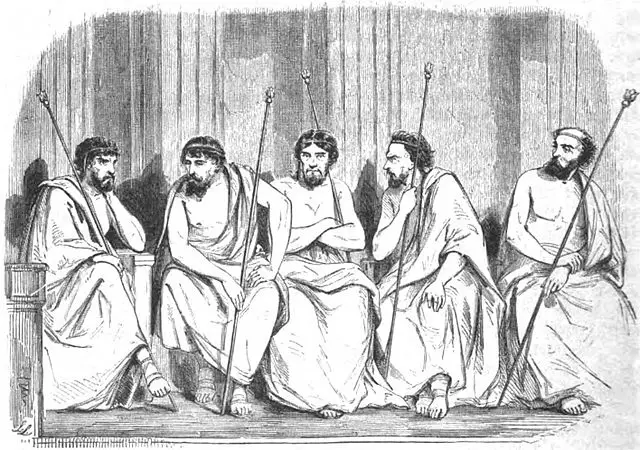
Many people are aware of the Spartan kings and the Gerousia as members of the Spartan government however most are not aware of the most powerful people in Sparta, the Ephors.
While Sparta was an oligarchy it did have some form of democratic government. This was because the most powerful people in Sparta were the Ephors, a group of 5 people that were elected by the whole of Spartan citizens and serve a one-year tenure of office.
Every Autumn the Spartan citizens would come together and cast a vote as to what 5 citizens should be the ephors for the year. We as historians do not know much about the prerequisites but it appears that you had to be a male citizen above the age of 30 to be able to run for election.
If you were elected to be an Ephor for Sparta you would essentially share complete power over waging war, forming alliances with outside powers, and acting as ambassadors to other nations. The Ephors were the only Spartan citizens that were allowed to travel outside Sparta and hold money to conduct foreign relations business.
On top of this, the Ephors were in charge of being the chief magistrates for the state of Sparta. They had the ability to call an assembly of the Gerousia and issue a vote on an action.
The most amazing thing about these Ephors was the ability to dispose of one of the two kings should it be in the best interest of the Spartan citizens. This means that the Spartan Constitution had a small form of checks and balances built into it that relied upon the consent of the governed.
Further, whenever the king left the city of Sparta for a military expedition two of the five ephors were sent with him to ensure that the king acted according to Spartan tradition. On top of this, the Ephors also controlled the Spartan police in charge of suppressing Helot revolts.
The elections for each Ephor would start in Autumn and end in October. We are not sure if an Ehpor could hold the office multiple times as not much about them has been written down. Out there is a copy of a work written by Aristotle that details these Ephors in more detail but historians have never found it.
Conclusion
There you have it; everything about the Spartan government system. In a way, you can call it an oligarchical monarchy but most people would simply refer to it as an oligarchy.
Currently, there is a trend among Greek scholars developing that Sparta had a democratic form of government. This might be the case with the Ephors but we simply do not have enough source material surrounding ancient Sparta. Potential graduate students of history studying the Spartan government will find plenty of research opportunities here.
I hope you enjoyed the article. I always strive to publish the best history articles here at The History Ace. If you enjoyed this article then consider subscribing to the free newsletter and sharing it around the web.
Further, you can check out some of the other articles below.
-
The Ancient Spartan Government Explained: Democracy or Oligarchy?

Was Sparta a democratic government or a monarchy? Was it controlled by an oligarchy or a dictator? Well here is everything about that.

